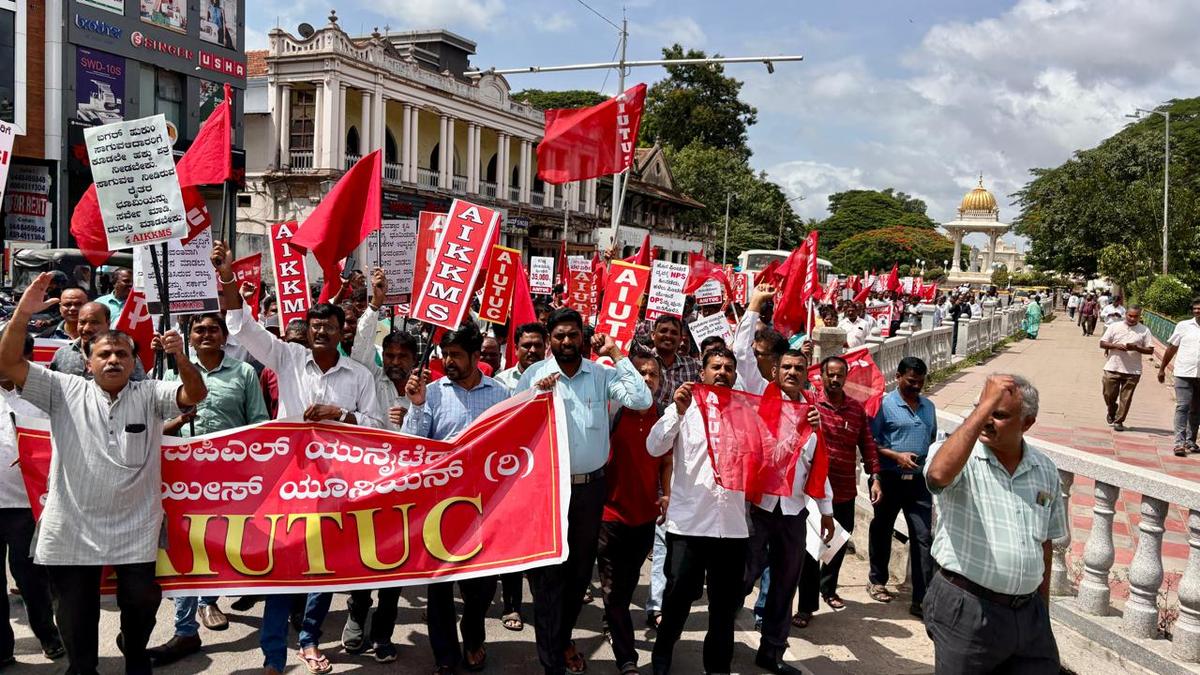Now Reading: Bharat Bandh: Mysuru Industry Unaffected, Strike Spotlights Labour Code Reforms
-
01
Bharat Bandh: Mysuru Industry Unaffected, Strike Spotlights Labour Code Reforms
Bharat Bandh: Mysuru Industry Unaffected, Strike Spotlights Labour Code Reforms

Quick Summary:
- Event: Nationwide Bharat Bandh organized by JCTU on July 9, 2025, targeting alleged anti-worker and pro-corporate policies of the government.
- Key Issues: Protest against the implementation of four labor codes – Code on Wages (2019), Industrial Relations Code (2020), Code on Social Security (2020), Occupational Safety, Health and Working Conditions Code (2020).
- claims by trade unions include:
– Labour codes curtail bargaining powers and safeguards for workers.
– Outsourcing labour and contract-based employment practices criticized.
– call for minimum wages at ₹36,000/month and pensions at ₹9,000/month for unorganized sector employees.
- Farmers’ demands included withdrawal of laws such as APMC Amendment act and guaranteed Minimum Support Price based on M.S. Swaminathan Commission’s formula.
- Protests in Mysuru led by AIUTUC, CITU, AIKMS included rallies criticizing central and state governments; industrial production remained unaffected.
Indian Opinion Analysis:
The Bharat Bandh sheds light on worker discontent with recent labor reforms aimed at encouraging business growth under “ease of doing business” policies.While industrial activity in Mysuru remained largely unaffected due to low participation among workers beyond union leaderships, the strike underscores meaningful concerns about job security within unorganized sectors. fundamental demands like higher minimum wages, social security benefits for farmers/workers, and opposition to privatization suggest deeper apprehension towards perceived erosion of hard-won workplace rights.
India’s challenge lies in balancing economic liberalization with equity for vulnerable worker populations. If unresolved grievances persist without tangible policy reassurances or stakeholder engagement between governments/trade unions/agriculture representatives-it may escalate resistance perhaps impacting investment outlook/stability longer-term.





















